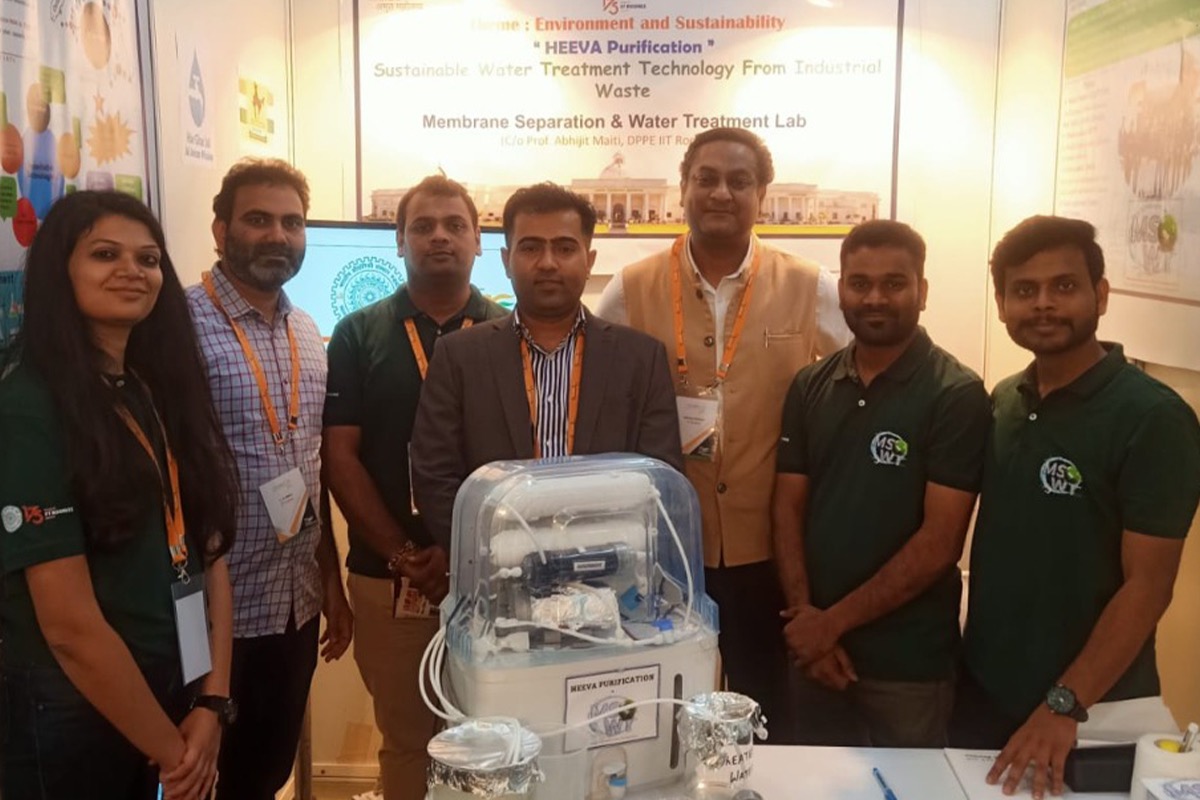Scientists at the Indian Institute of Technology (IIT), Roorkee have developed a simple and affordable point-of-use technology that can remove arsenic – one of the most common water pollutants – and heavy metals from contaminated water.
The consumption of arsenic-contaminated water has also been associated with cardiovascular disease and diabetes. Arsenic tends to cause negative impacts on cognitive development and increased deaths in young adults in early childhood.
Even at low concentrations, arsenic poses a toxicity threat to human beings and animals and long-term to this metal from drinking water and food can cause cancer and skin lesions in the body.
The low-cost solution, which produces arsenic-free drinking water, has been showcased at ‘IInvenTiv,’ a mega two-day research and development fair organised at IIT, Delhi.
The novel adsorbent can adsorb two most hazardous arsenic species – As (III) & As (V) – along with other heavy metal ions, officials at IIT, Roorkee said, adding that it can be easily integrated into existing water purification systems in households.
A prototype of a fixed bed with 50 g (about 25 mL) material has been examined with real arsenic-contaminated groundwater with an initial arsenic concentration of 100-200 µg/L and contact time of around 2 minutes with the adsorbent, they said.
IIT Roorkee’s acting director Prof ML Sharma said, “The arsenic problem is considered a global problem, as many countries from America and Africa are affected by arsenic and other heavy metals in the aquifer.”
“This innovation will be of great benefit not just to India but to the entire world. To meet high food demand, huge amounts of arsenic-contaminated groundwater are being withdrawn and they cause surface water contamination with arsenic,” he added.
Prof Akshay Dvivedi, Dean for Sponsored Research and Industrial Consultancy (SRIC) of IIT Roorkee said, “Management of ferromanganese slag is a great challenge for the industry and the country. So, the utilization of ferromanganese slag will be an environmentally sustainable approach. Thus, the process is environmentally friendly as no hazardous chemicals are involved in the manufacturing process.”
Cheap raw materials, minimal use of chemicals, and the easy scalability of the removal process are the three pillars of this invention, informed Prof Abhijit Maiti of IIT Roorkee’s Department of Polymer and Process Engineering.
“Arsenic removal experiments have successfully been done under real arsenic-contaminated water environments,” he further said.
Once fitted, the solution can filter 8000 litres of water over years in a standard 4-5 member family.
“The conversion of this technology is easy and affordable as the adsorbent is prepared from industrial waste and has little commercial value. Currently, this technology is not available in India, and imported adsorbents available in the market are limited, and the cost is also considerably higher,” the acting director stated.
In India, West Bengal, Jharkhand, Bihar, Uttar Pradesh, Assam, Manipur and Chhattisgarh are reported to be most affected by arsenic contamination of groundwater above the WHO-permissible level.

